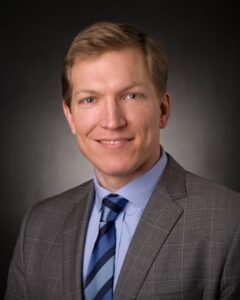Columbia University
“Colloidal robotics: Engineering the autonomous behavior of self-propelled particles”
4:10 PM, 134 Featheringill Hall
Refreshments served at 3:45 PM
Abstract. Mobile robots combine sensory information with mechanical actuation to move autonomously through complex environments and perform specific tasks (e.g., a robot vacuum cleaner). The miniaturization of such robots to the size of living cells (ca. 2-40 mm) is actively pursued for applications in biomedicine, materials science, and environmental sustainability. In pursuit of these “microrobots”, we seek to understand the many mechanisms underlying the self-propulsion of colloidal particles through viscous fluids. Building on this understanding, we seek to design active particles capable of autonomous behaviors such as navigation of structured environments. In this talk, I discuss two recent efforts – on Quincke oscillators and magnetic topotaxis, respectively – that highlight these complementary aims to understand and design active colloids. In part one, I explain how static electric fields drive the oscillatory motion of micron-scale particles commensurate with the thickness of a field-induced boundary layer in nonpolar electrolytes. In part two, I describe how spatially uniform, time-periodic magnetic fields can be designed to power and direct the migration of ferromagnetic spheres up local gradients in surface topography.
Bio. Kyle J. M. Bishop serves as Professor of Chemical Engineering at Columbia University. Bishop received his BS in Chemical Engineering with highest distinction from the University of Virginia and his PhD from Northwestern University. Prior to joining the Columbia faculty in 2016, he was a post-doctoral fellow with George Whitesides at Harvard University and an Assistant Professor of Chemical Engineering at the Pennsylvania State University. His research seeks to discover, understand, and apply new strategies for organizing and directing the assembly of colloids and other soft materials outside of thermodynamic equilibrium. Bishop is the recipient of the 3M Non-tenured Faculty award and the NSF CAREER award.
